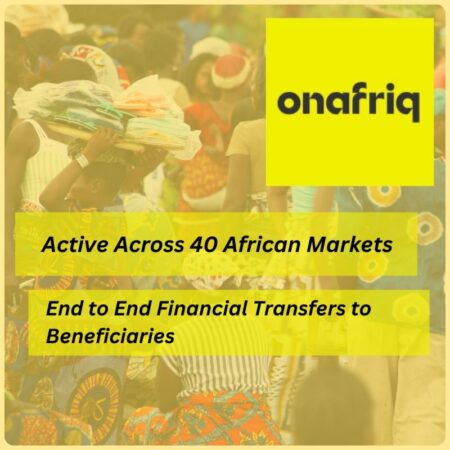The world is in economic lockdown due to the COVID-19 pandemic. No good news is coming out of any media whether mainstream or social media. Never in our lifetime have we witnessed such a magnitude of business and border closures, from developed to developing countries. It is a global problem and therefore, its effects should be measured globally. The coverage of this pandemic by the global and local media clearly indicates the economic problems ahead not only for individuals but also for businesses at large. This calls for a reflection of the effect of this pandemic on the financial sector in Tanzania given the current global and local environment.
A summary of the financial sector in Tanzania shows a composition of thirty commercial banks, six community banks, five microfinance banks and two development finance banks (collectively lenders). The primary function of these lenders is to acquire liabilities through deposits and assets by lending to businesses and individuals. When lending, lenders assume investment risk, but expect returns by way of revenues through various charges, interest rate levies and the repayment of the principal amounts. Banking laws in Tanzania require loans to be adequately secured, although there are unsecured loan portfolios as well. Irrespective of the collateral taken by lenders to secure their loans, these repayments are expected to come from revenues generated from operational businesses. Collateral realization is the last resort.
Also Read:Tanzania travel advisory: measures for air travel and cargo trucks
It is because of their special place in the economy that lenders should actively engage their borrowers (i.e. customers) at a very early stage to protect their assets and the economy as a whole, in an effort to mitigating any foreseeable defaults.
The financial sector is highly regulated, including by the Bank of Tanzania Act, the Banking and Financial Institutions Act, the Foreign Exchange Act, and regulations, directives and circulars made thereunder. It would be naïve to suggest that lenders are not aware of the risk posed by COVID-19, as they are required to have in place management of risk assets policies as part of their modus operandi in line with the banking laws in particular the Banking and Financial Institutions (Management of Risk Assets) Regulations and the Risk Management Guidelines issued by the Bank of Tanzania as the licensing, regulator and supervisor of these institutions. As the regulator of the financial sector, the Bank of Tanzania’s primary concern is to make sure that these lenders operate in a financially sound manner, in that they have adequate credit by way of proper capitalization; good investment policies that among others identify, measure, monitor and manage the risk arising from their businesses aimed at ensuring timely and adequate measures or actions are taken on problematic assets. This is geared towards promoting and maintaining public confidence in the financial and banking sector.
Given that loans are assets, they must be repaid or secured. Repayment is normally expected as already argued to come from business revenues. When there is disruption to businesses, the borrower’s capacity to pay is impacted negatively thus necessarily affecting performance of the lender’s asset, which eventually leads lenders to resort to the unpalatable action of collection by either managing the business (if it is found to have been mismanaged), to generate enough revenue to repay the loan or by resorting to disposal of the security. Loan agreements foresee challenges that may incapacitate a borrower to repay the loans and provide for default clauses. Given this unprecedented pandemic, it is important that commercial lenders be on the alert to manage these possible defaults by borrowers in order to minimize statutory provisioning for losses. For example, it is time for lenders to closely monitor the economic trend affecting their customers to understand the extent of the financial difficulties they are facing right now.
Read:How the EAC is promoting economic growth while fighting a pandemic
In most loan agreements borrowers are required to submit monthly, quarterly, semi-annual or annual reports to lenders. The primary purpose of these reports is to inform a lender of the financial status of the borrower, market conditions and other operational issues so that a lender can make a reasonable assessment regarding the ongoing nature of the business. It is also a signal to the lender to assess the solvency or otherwise of the business. COVID-19 has resulted in a world-wide pause to business. There is complete unprecedented lockdown of business both local and international. Borders have been closed, production suspended, travel grounded, hotels and tourism sector completely shut down. The pandemic does not call for legalese thinking such as the possibility of invoking force majeure by borrowers (which has rarely been upheld by courts when it comes to defaults in the banking business or the concept or doctrine of frustration of a contract – which is not the ambit of this brief), but rather a practical and realistic approach to dealing with borrowers, the regulator, creditors and shareholders.
With the loss of business due to COVID-19, borrowers face loan defaults. In our view, lenders should attempt to take a pragmatic approach to the problem, by assisting their customers to survive the pandemic if at all possible. Considerations such as waivers of certain charges, interest rates (both current and penal) and restructuring options to give relief to borrowers should as far as practicable be considered. Lenders should take pains to assess the financial capacity of their borrowers, given the revenues from the businesses and based on the financial capacity of the business, agree on the amount that can be paid. This calls for lenders to approach this in line with the Management of Risk Assets Regulations and their own credit risk management policies.
It should be borne in mind that during this trying time, it is important for lenders to engage with the regulator (the Bank of Tanzania) with a view to consider either temporarily suspending the statutory provisioning requirements and consultation with the Revenue Authority through the regulator to waive penalties on the anticipated tax revenues from interest charged and other charges if waived. In addition, lenders ought to fear engaging the regulator on the financial stimulus package. In this respect, it is important to engage the regulator as an industry and not as individual lenders by bringing to the regulator’s attention measures taken in other jurisdictions including in the region to ensure the survival of the banking industry. Silence and non-action is detrimental to the economy and the banking business. By actively engaging now with customers and the regulator, the industry can mitigate the risk of heavy provisioning for losses. It is a time for the banking industry to act collectively, borrow a leaf from other jurisdictions and actively suggest solutions to the regulator that will mitigate the anticipated loss of business and build confidence in the industry while reassuring customers that the banking industry is there for them.
By: Sadock Dotto Magai , DLA Piper Africa Tanzania Member Firm, IMMA Advocates, Dar es Salaam, Tanzania.










